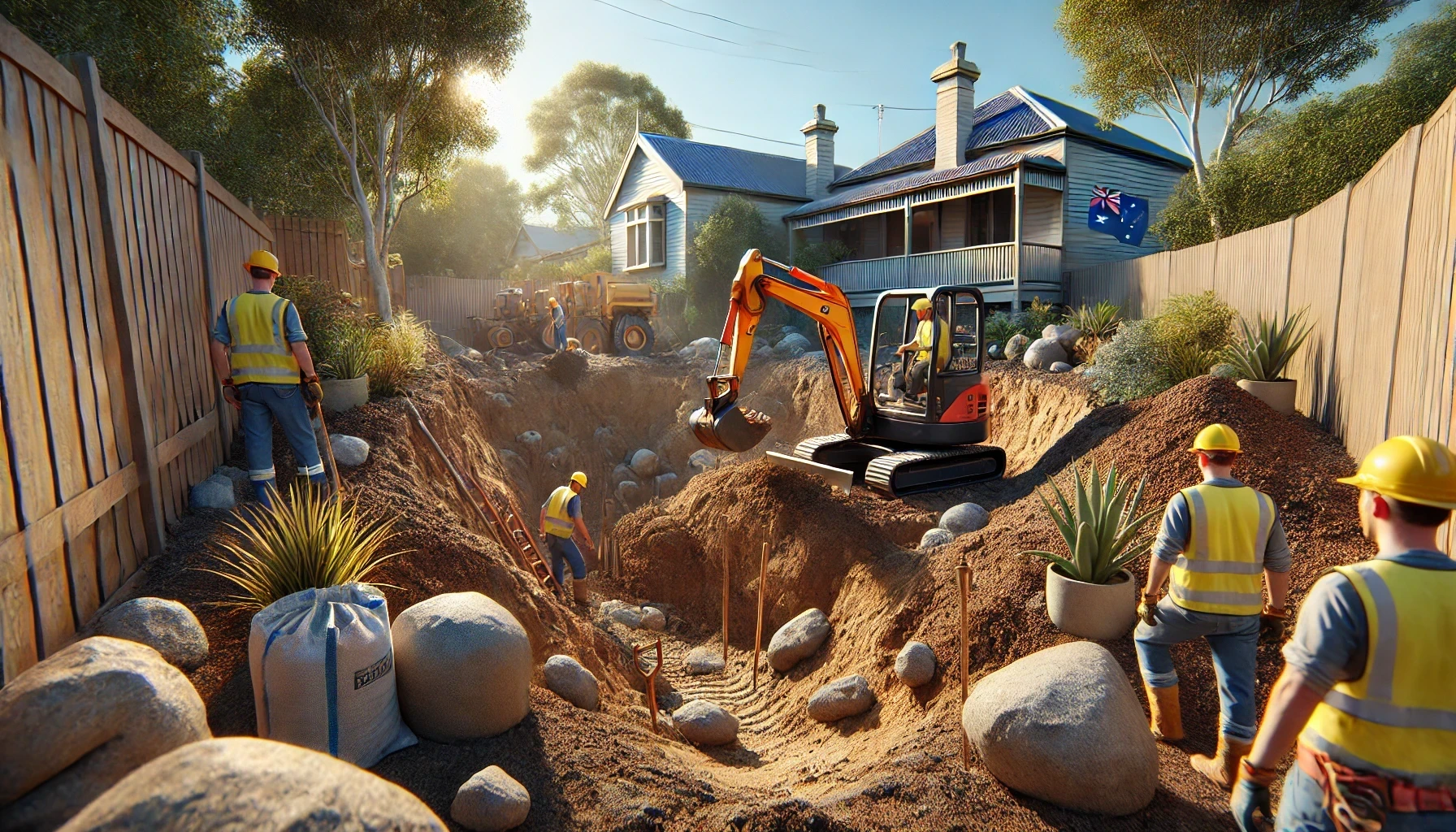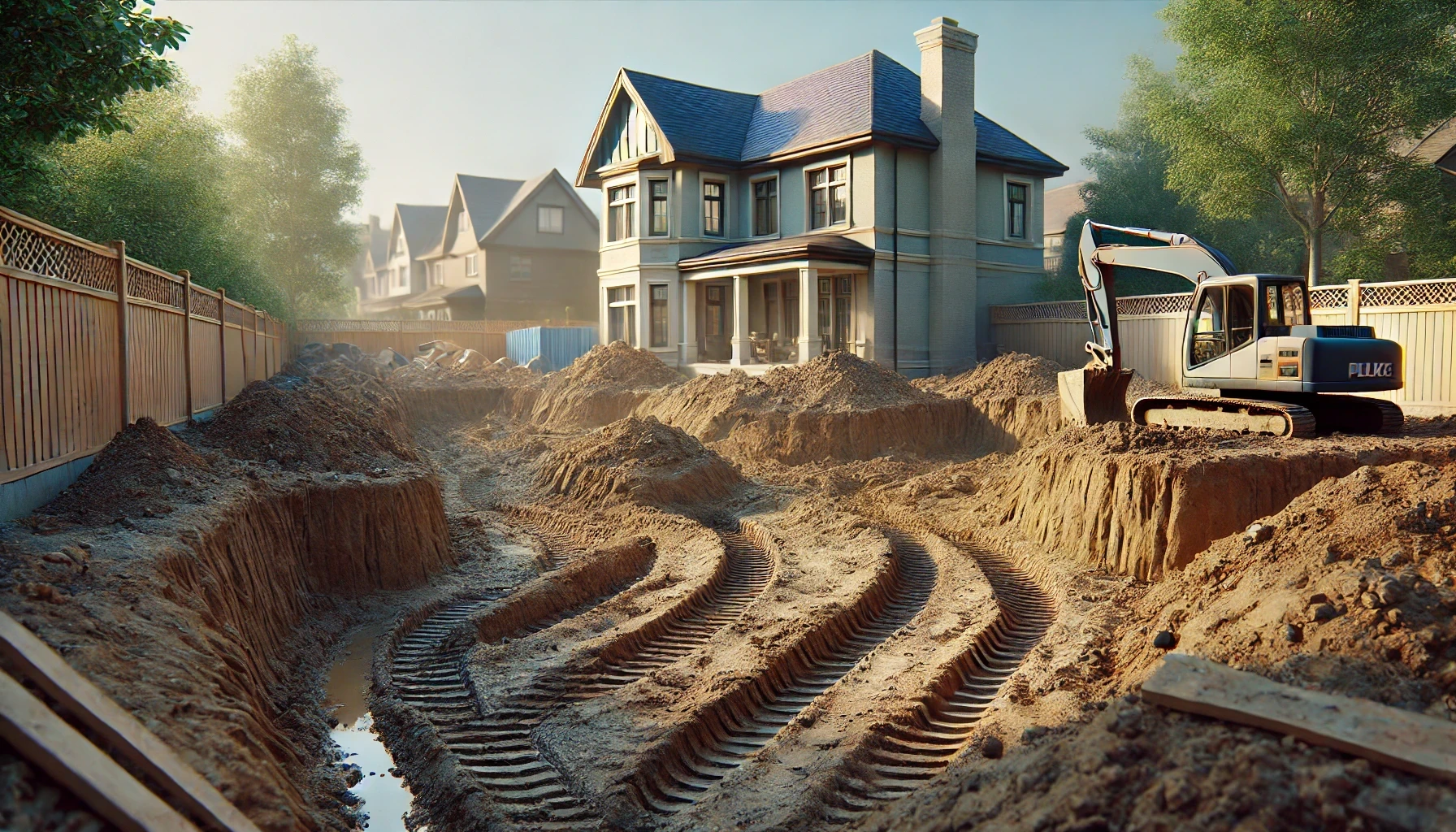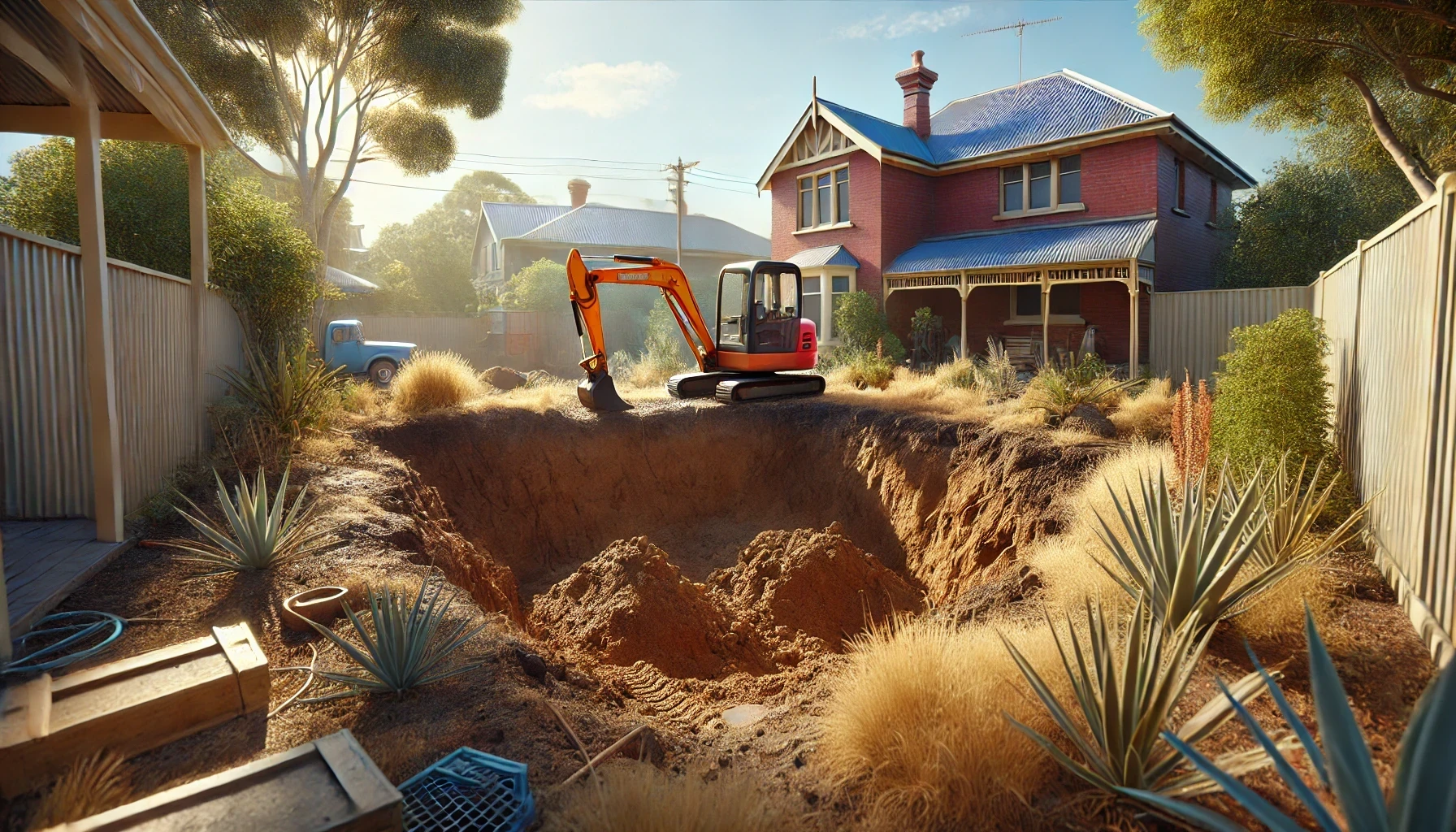Step-by-Step Guide to Planning an Excavation Project
Planning an excavation project requires careful consideration and expert knowledge. At Excavations Newcastle, we understand the complexities involved in these undertakings. Our step-by-step guide will walk you through the essential stages of planning your excavation project, ensuring a smooth and efficient process from start to finish.
Safety and precision are paramount in any excavation project. We'll cover everything from initial site assessments to post-excavation restoration, providing you with the insights needed to make informed decisions. Our guide aims to demystify the excavation process, helping you understand each phase and its importance.
We've drawn on our extensive experience in Newcastle and the Hunter Region to create this comprehensive resource. Whether you're planning a small residential project or a large-scale commercial excavation, our guide will equip you with the knowledge to approach your project with confidence.
Key Takeaways
- Proper planning is crucial for a successful excavation project
- Safety measures and legal requirements must be prioritised throughout the process
- Post-excavation site restoration is an essential final step

Understanding the Excavation Process
Proper planning and analysis are crucial for a successful excavation project. We'll examine the key steps involved in assessing the site and securing the necessary approvals.
Initial Assessment and Site Analysis
We begin by conducting a thorough site inspection. Our team surveys the land, taking note of soil conditions, underground utilities, and potential obstacles. We use advanced equipment to map the area and determine the exact dimensions of the excavation.
Soil testing is a critical step. We analyse samples to assess stability and composition. This information helps us choose the right machinery and techniques for the job. We also consider environmental factors like drainage patterns and nearby structures that could be affected.
Our experts create detailed site plans based on this data. These plans outline the excavation boundaries, depths, and any special considerations unique to the project.
Obtaining Necessary Permits
Before breaking ground, we secure all required permits from local authorities. This process typically involves submitting our site plans, project details, and environmental impact assessments to the relevant local council(s).
We liaise with utility companies to ensure all underground services are identified and protected. This may involve arranging for service relocations if necessary.
We also obtain any additional permits specific to the project, such as those related to noise levels or traffic management. Our team is well-versed in local regulations and works diligently to meet all compliance requirements.
Proper paperwork not only ensures legal compliance but also helps prevent costly delays during the excavation process.
Planning Your Excavation with Excavations Newcastle
At Excavations Newcastle, we prioritise thorough planning for every project. Our expert team helps clients define clear objectives and select the most suitable equipment for each unique excavation job.
Defining Project Objectives
We begin by discussing your specific needs and goals. This crucial step ensures we understand the scope of work and any particular challenges your site may present.
Our team conducts a detailed site survey to assess soil conditions, terrain, and potential obstacles. We use this information to develop a comprehensive project plan tailored to your requirements.
We'll establish a realistic timeline and budget based on the project's complexity. This includes factoring in any necessary permits or approvals from local authorities in the Hunter Valley.
Safety is paramount in our planning process. We identify potential hazards and implement appropriate safety measures to protect our workers and your property throughout the excavation.
Choosing the Right Equipment
Our extensive fleet of excavation machinery allows us to select the perfect tools for your project. We consider factors such as soil type, depth of excavation, and site accessibility when making our choices.
For smaller residential jobs, we might opt for compact excavators or skid steers. Larger commercial projects may require heavy-duty bulldozers or long-reach excavators.
We also account for any specialised attachments needed, such as hydraulic hammers for rock breaking or augers for precise hole drilling. Our equipment selection ensures efficiency and minimal site disruption.
Our experienced operators are skilled in handling a wide range of machinery. We match the right personnel to each piece of equipment, guaranteeing optimal performance and safety on your project.
Executing the Excavation Safely
Safety and environmental responsibility are paramount in any excavation project. We prioritise the well-being of our team and minimise our impact on the surrounding ecosystem throughout the process.
Ensuring Employee Safety
We implement strict safety protocols. All workers wear proper personal protective equipment (PPE), including hard hats, steel-toe boots, and high-visibility vests.
We conduct daily safety briefings to review potential hazards and safety procedures. Our team is trained in proper equipment operation and emergency response.
Regular equipment inspections are crucial. We check machinery before each use and perform scheduled maintenance to prevent malfunctions.
We use trench shoring and benching techniques to prevent cave-ins for deep excavations. Clear communication systems are in place, including hand signals and two-way radios.
Monitoring Environmental Impacts
We carefully assess the site for environmental considerations before starting work. This includes identifying protected flora and fauna, and planning to minimise disturbance.
Erosion control measures are implemented, such as silt fences and sediment basins. We monitor and manage dust levels through water spraying when necessary.
Our team is trained to handle unexpected discoveries, like cultural artefacts or contaminated soil. We have procedures in place to halt work and notify relevant authorities.
We use low-noise equipment where possible and schedule noisy activities during appropriate hours to reduce disruption to nearby residents and wildlife.
Post-Excavation and Site Restoration
Once the excavation work is complete, we focus on site restoration to ensure the area is left in a safe and suitable condition. Our first step is to remove any temporary structures or equipment used during the project.
We carefully backfill the excavated areas with appropriate soil or materials. This process involves compacting the fill in layers to prevent future settling issues. Proper compaction is crucial for the stability of any structures that may be built on the site later.
Next, we grade the site to achieve the desired contours and drainage patterns. This step helps prevent water pooling and erosion. We use specialised equipment to ensure precise grading that meets project specifications.
Erosion control measures are implemented where necessary. These may include:
- Installing silt fences
- Applying erosion control blankets
- Planting vegetation
We restore any damaged infrastructure, such as pavements or utilities, to their original condition or better. This often involves coordination with local authorities and utility companies.
Finally, we conduct a thorough site clean-up. We remove all debris, excess materials, and equipment. Our team ensures the site is left tidy and ready for the next phase of development or use.
Throughout the restoration process, we adhere to local regulations and environmental standards. We're committed to minimising the project's impact on the surrounding ecosystem.






